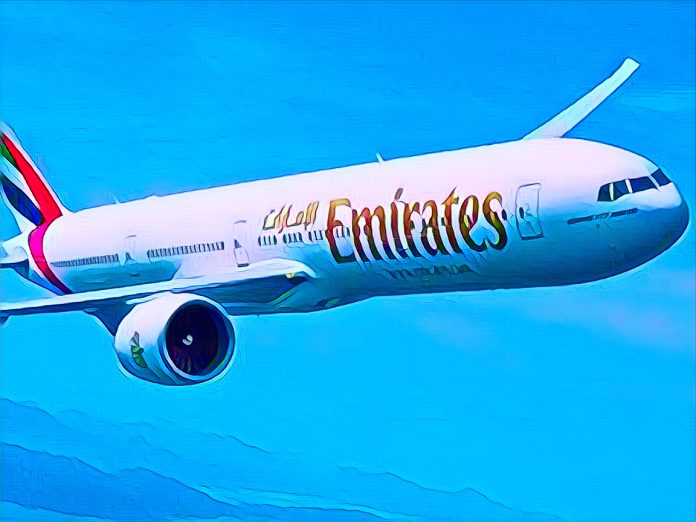The United Arab Emirates (UAE) has recently lifted its visa ban on Nigerian passport holders, but this development comes with a significant clause. Nigerian applicants are now required to pay a non-refundable application fee of N640,000 for visas. This drastic increase from the previous fee of $100, which was approximately N155,500 at the current exchange rate of N1,555 per dollar, has sparked widespread outrage among Nigerians.
Under the new visa issuance guidelines established by the UAE government, applicants must also obtain a Document Verification Number (DVN) before applying for a visa. However, paying the N640,000 fee does not guarantee a visa. The issued DVN is only valid for 14 days or until the visa application is processed by the visa application department, whichever comes first.
Many Nigerians have taken to social media to express their displeasure over the new visa fee. One user, NEFERTITI, stated, “It is obvious the UAE doesn’t want Nigerians. They reluctantly unbanned the Nigerian passport but slammed a hefty N640,000 fee on Nigerians. Guess what? The money is non-refundable and has an expiration date. This is see finish.”
Another user, Prince, remarked, “This is just extortion in fine words. Shameless.” Similarly, Lucky Man expressed his frustration, calling the situation “exploitation and shameful if allowed by the Nigerian government.”
The discontent is not limited to social media. Many Nigerians feel that the constant appeals from the Nigerian government to lift travel bans to the UAE primarily benefit wealthy individuals and politicians rather than ordinary Nigerians. MAYOR voiced this sentiment, stating, “You think FG constant solicitation was for mere Nigerians? The constant appeal from the Nigerian government to lift travel bans to the UAE appears to primarily benefit wealthy individuals and politicians seeking a haven for their ill-gotten wealth, rather than ordinary Nigerians.”
On Tuesday, Mohammed Idris, the Minister of Information and National Orientation, announced that the UAE had lifted the visa ban on Nigerians traveling to the country. The announcement, made through a statement issued by Rabiu Ibrahim, the Special Assistant (Media) to the Minister, confirmed that Nigerian passport holders could now obtain visas to the UAE.
“You are aware that Nigeria has been discussing with the United Arab Emirates on the issue of visa for Nigerian passport holders going to the United Arab Emirates. Today, an agreement has been reached on that, and effective from today, Nigerian passport holders are able to obtain visas to go to the United Arab Emirates,” said Idris.
The visa ban had been imposed about two years ago due to various diplomatic disputes. In addition to the visa ban, Dubai’s Emirates Airline had halted flights to Nigeria because the Central Bank of Nigeria could not remit an estimated $85 million in revenue to the UAE.
In June, following several meetings with the UAE government, the Nigerian Federal Government assured its citizens that the visa ban would soon be lifted. In the same month, the Nigerian government announced that it had paid 98% of the $850 million owed to the UAE.
Despite the lifting of the ban, the new visa fee has dampened the initial relief and excitement among Nigerians. Many feel that the high cost is an additional barrier that will prevent ordinary citizens from traveling to the UAE. The fee hike has sparked a debate about the fairness and accessibility of international travel for Nigerians, with many calling on the government to negotiate more favorable terms.
The controversy surrounding the new visa fee highlights the broader issue of the affordability and accessibility of international travel for Nigerians. Many believe that the high cost will disproportionately affect those who cannot afford such fees, effectively limiting their opportunities for travel, business, and education.
The Nigerian government’s efforts to address the visa ban and the associated costs are now under intense scrutiny. There are calls for the government to take a firmer stance in negotiating more reasonable terms with the UAE to ensure that travel remains accessible to all Nigerians, not just the wealthy elite.
The new visa guidelines have also brought attention to the broader diplomatic relationship between Nigeria and the UAE. While the lifting of the ban is a positive step, the significant increase in visa fees suggests that there may still be underlying tensions and unresolved issues between the two countries.
For now, the focus remains on addressing the immediate concerns of Nigerian travelers and ensuring that their rights and interests are adequately represented in any future negotiations. The outcome of these discussions will be crucial in shaping the future of travel and diplomatic relations between Nigeria and the UAE.



